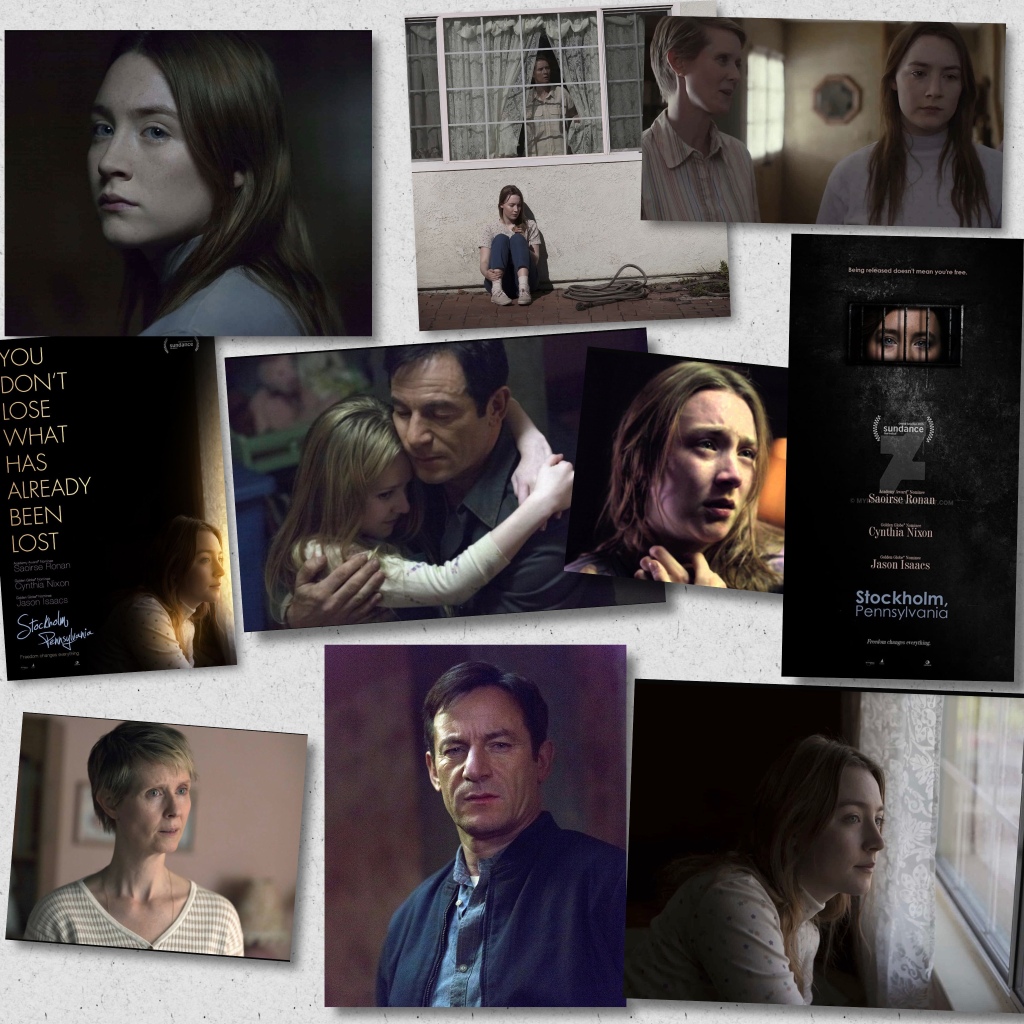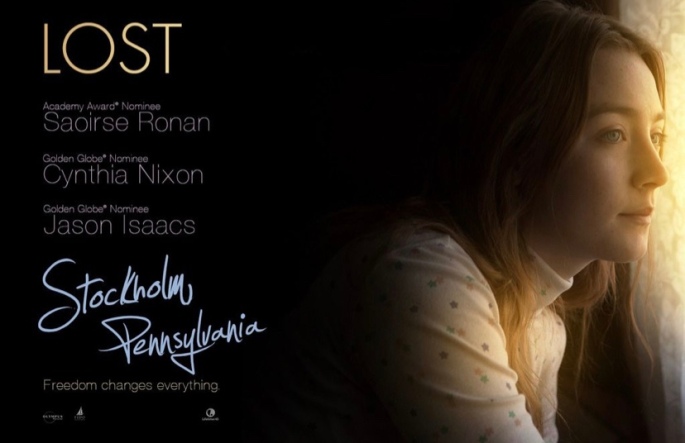
I struggled with Nikole Beckwith’s Stockholm Pennsylvania on several levels, despite it having a wicked strong cast and premise so full of potential I almost want to write my own version that does it more justice than this incredibly frustrating film. Saoirse Ronan gives a typically superb performance as Leia, a young woman who was kidnapped when she was very young by doomsday obsessed, ill adjusted Benjamin (Jason Isaacs) and raised in his captivity and care for over a decade. When she’s eventually found and freed, she returns to a life she barely has memory of, to two parents (Cynthia Nixon and David Warshofsky) who feel like strangers to her. Her life with Benjamin was never filled with abuse or horror or anything like that, beyond kidnapping her and filling her mind with all sorts of end of the world, anti-humanity nonsense he actually cared for her as his own kid and treated her decently, all things considered. So there’s this alienation from the real world, this wall of separation from parents who desperately try and reconnect with her and this strange bond with her captor who is still out there in jail, thinking of her. How does the script take this situation and evolve it into something challenging, believable and emotionally resonant? Well, it doesn’t really. Ronan, Isaacs and Warshofsky are terrific but Nixon gives this shrill, unpleasant and altogether inexplicable portrait of tyrannical maternal instinct gone wrong that curdles into her own version of holding Leia captive when she can’t reconcile that her daughter just isn’t the same person she used to be. I’m not sure what Beckwith was going for or drawing on with this original script, it seems as if she is deliberately trying to tell a knowingly obtuse, in-your-face uncomfortable story and the result is a maddening experience, or at least was for me. It’s a shame because the idea, setup and execution of the first act is really good and drew me in and then it just goes off the deep end appears to lose itself in histrionic, grim, unnecessary Mommie Dearest nonsense that feels like it walked in from a much lesser film, and as such it drags the whole experience down and you just feel emotionally depleted afterwards, with no reward, pathos, thought provocation or narrative satisfaction. An interesting experiment that needlessly nosedives and betrays both the audience and its characters to masochistic doom and gloom that doesn’t feel warranted.
-Nate Hill
